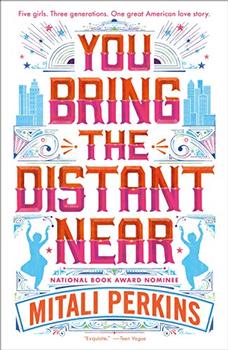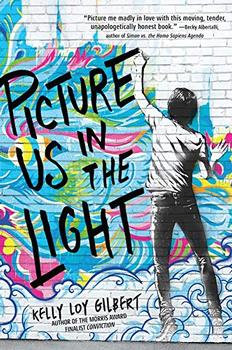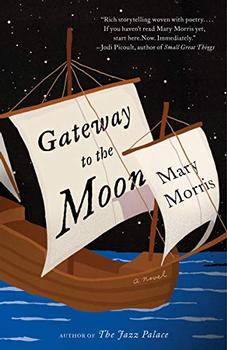Summary | Excerpt | Reading Guide | Reviews | Beyond the book | Read-Alikes | Genres & Themes | Author Bio

For immigrants in the United States, who we are and where we are from are inextricably tied together. Mitali Perkins' You Bring the Distant Near (long listed for the National Book Award) explores home and identity through three generations of women as they navigate how place, culture, language, and tragedy shape their idea of who they are – both alone and as a family.
The book follows the lives of five Bengali women: sisters Tara and Sonia, their mother Ranee, and eventually, their daughters, Anna and Chantal. The family relocates to New York City from London and, later, New Jersey, and they have to figure out how to fit into these new worlds and new lives, so different from the rules of the society they left behind in India. As a family they weather change and tragedy, and they are each driven in different directions, until one of them makes a decision that tears them apart, possibly for good. But all wounds must heal one way or another, and as the women slowly find their place in the world, they take the reader on a journey as much about reshaping themselves and their culture as it is about finding out what it means to be an American.
The strength of this narrative is how it is simultaneously rooted in a particular immigrant experience while remaining completely accessible to those who might not have a personal connection to this culture. It is an immigrant story, but it is also an American story, a coming of age story, a story about family journeys, and, ultimately, a story about hope, loss, and change, and how these things are interwoven across all of our lives. Perkins has taken her title from a section of a poem by Rabindranath Tagore, included in the front of the book:
Thou hast made me known to friends whom I knew not.
Thou has given me seats in homes not my own.
Thou hast brought the distant near and made a brother
of the stranger. I am uneasy at heart when I have to leave
my accustomed shelter; I forgot that there abides the old
in the new, and that there also thou abidest.
Truly, this passage frames the themes of the text, as it applies not only to the characters within the narrative, but demonstrates exactly what Perkins does to the reader. These women, their struggles, their searches, their losses, and their moments of wonder become ours in such a way that their origins do not matter, their differences do not matter. All that matters is that they are here, and share their lives with us, and that we so clearly can see pieces of ourselves in all of them.
This is a love story – not only of romantic love, but of the love between families, the love between mothers and daughters, and how that love frames our lives. And it rings true, because it is an imperfect love, one that grows and changes as each woman grows and changes. But what Perkins accomplishes best is the creation of an individual as opposed to an archetype, which is, unfortunately, all too rare in modern publishing. Each woman's voice is unique and her own. This is the story of Tara, Sonia, Ranee, Chantal, and Anna, and where they all come together. It could have easily become trite and relied on lazy stereotypes of the "Indian experience" in the USA, or of the tropes of what the expectations are on certain kinds of immigrant children. But that never happens. If we leave this book wanting anything, it is simply more time with these women, a greater opportunity to see them, so we can learn to see ourselves better.
The greatest freedom in any culture is to be able to choose who you will be; who you are. You Bring the Distant Near reminds us of that freedom, and shows us how we can make that choice for ourselves, without compromising either where we are from, where we want to go, and who we want to be.
![]() This review was originally published in The BookBrowse Review in October 2017, and has been updated for the
May 2019 edition.
Click here to go to this issue.
This review was originally published in The BookBrowse Review in October 2017, and has been updated for the
May 2019 edition.
Click here to go to this issue.

If you liked You Bring the Distant Near, try these:

by Kelly Loy Gilbert
Published 2019
Danny Cheng has always known his parents have secrets. But when he discovers a taped-up box in his father's closet filled with old letters and a file on a powerful Silicon Valley family, he realizes there's much more to his family's past than he ever imagined.

by Mary Morris
Published 2019
From award-winning novelist Mary Morris comes the remarkable story of a remote New Mexican town coming to grips with a dark history it never imagined.
The low brow and the high brow
Click Here to find out who said this, as well as discovering other famous literary quotes!
Your guide toexceptional books
BookBrowse seeks out and recommends the best in contemporary fiction and nonfiction—books that not only engage and entertain but also deepen our understanding of ourselves and the world around us.